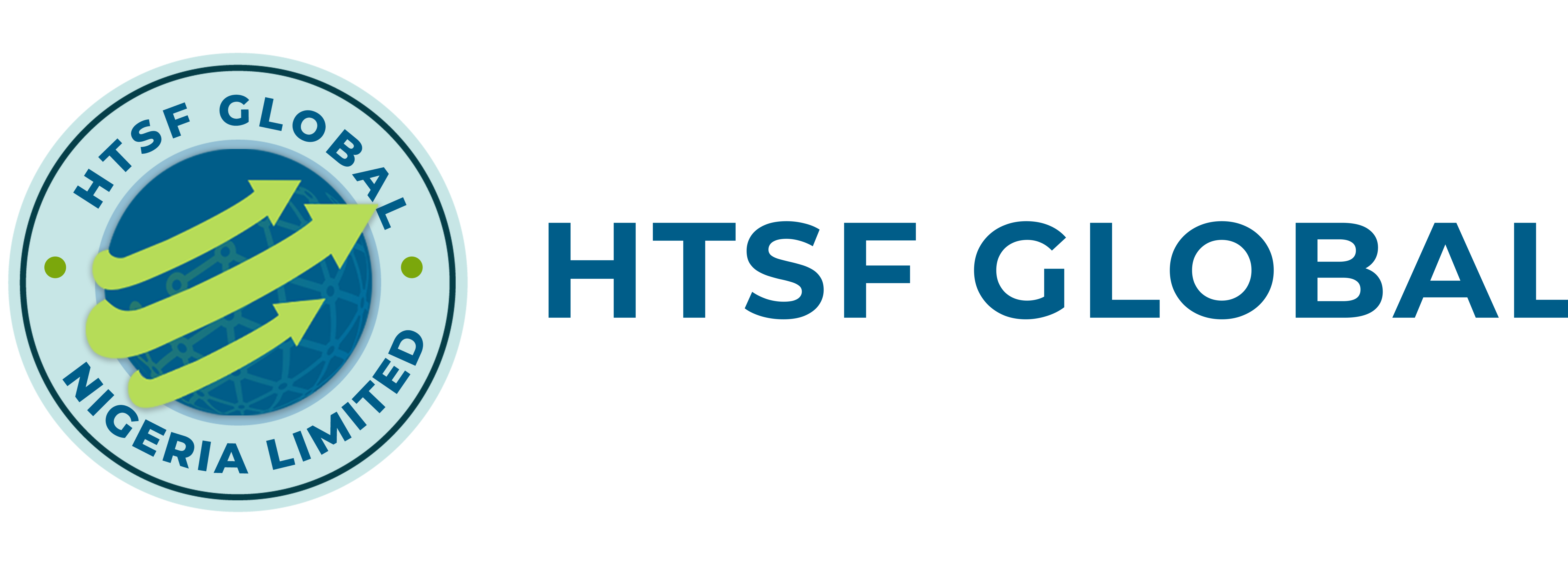
How HTSF Global is Putting Nigerian Agriculture on the World Map
Table of Contents
- Introduction
- Overview of HTSF Global and its Mission
- HTSFarms: Empowering Farmers Through Digital Transformation
- Impact on Market Access and Productivity
- HTSPlus: Supporting Convenience and seamless shopping experience
- Role in Reducing stress and Ensuring Quality
- HTSLogistics: The Backbone of Supply Chains
- Innovations in Delivery Systems
- Aligning with the Sustainable Development Goals (SDGs)
- How HTSF Contributes to Key SDGs
- Digital Farmer Initiative
- Tackling Environmental Challenges: The Zero-Waste Initiative
- Poultry Waste to Organic Fertilizer
- The OASIS Project: A Sustainable Solution for Water Scarcity
- Solar-Manual Boreholes and Drip Irrigation
- Conclusion
- HTSF Global’s Vision for the Future of Nigerian Agriculture
HTSF Global’s Vision for the Future of Nigerian Agriculture
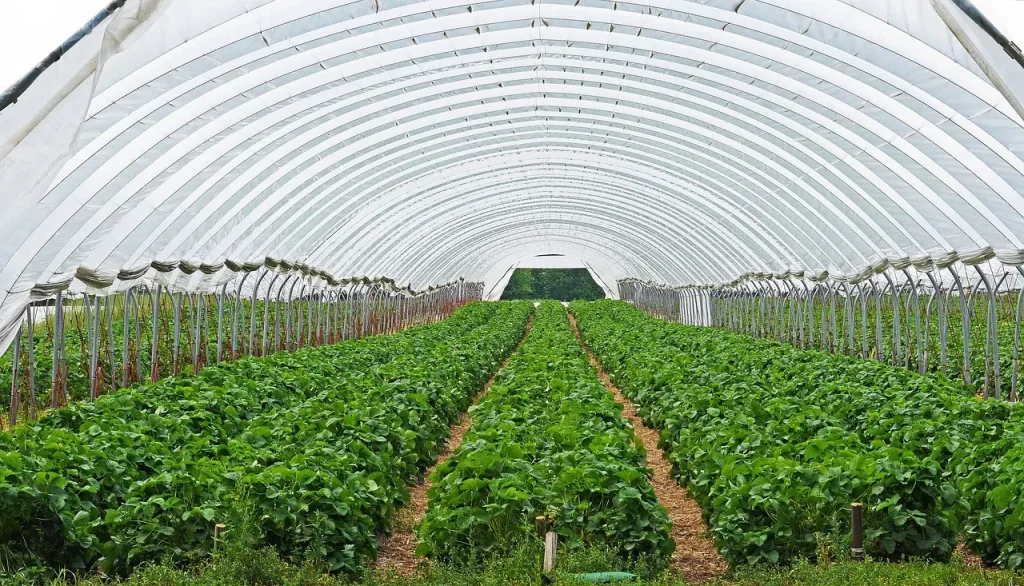
Introduction
Agriculture has always been at the heart of Nigeria’s economy. For decades, farmers have worked tirelessly to produce food for local communities, but many challenges have hindered the sector from reaching its full potential on a global scale. In response to these challenges, HTSF Global Nigeria Limited has emerged as the solution, redefining agriculture through technology and innovation while positioning Nigeria on the global agricultural map.
Since its inception in October 2020, HTSF Global has committed itself to revolutionizing agriculture by leveraging technology to improve productivity, streamline supply chains, and enhance food security. This commitment is reflected in a range of initiatives, platforms, and partnerships that not only elevate local farmers but also connect Nigerian agriculture to international markets and best practices.
HTSFarms: Empowering Farmers Through Digital Transformation
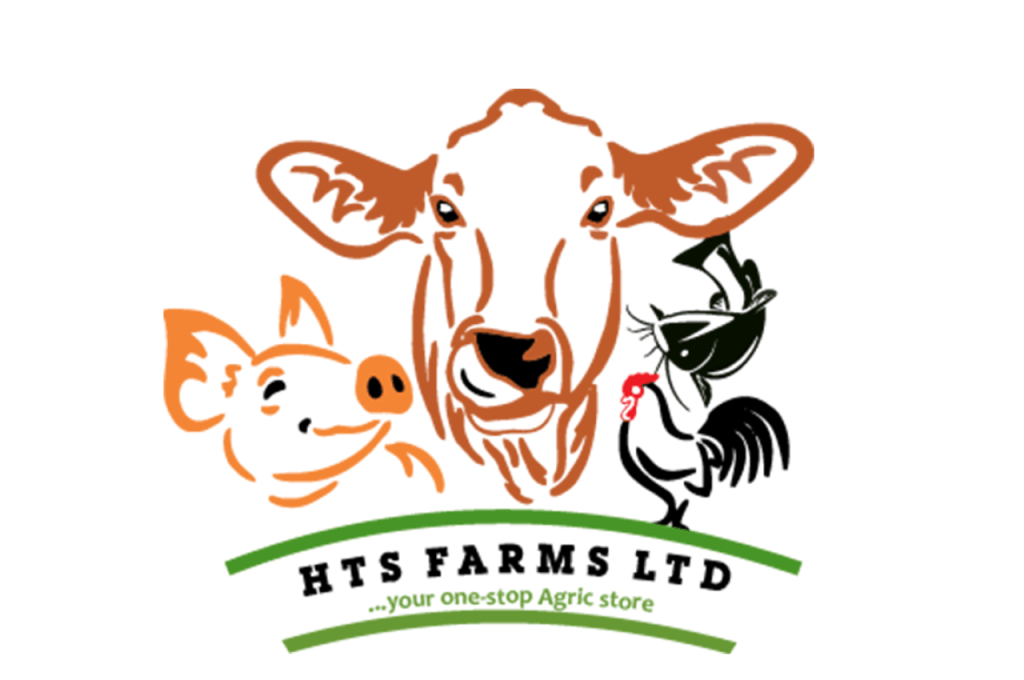
At the core of HTSF Global’s success is HTSFarms, an innovative agritech e-commerce platform that bridges the gap between farmers and quality farm inputs. Traditionally, Nigerian farmers have struggled with access to markets, for quality farm inputs like seeds, agrochemicals, fertilizers, and modern farming equipment. HTSFarms addresses these issues by providing a digital marketplace where farmers can purchase high quality inputs for greater productivity and output at the end of each farming session.
With this platform, farmers are not only gaining increased access to markets but are also adopting digital tools that enhance farm management, productivity, and resource efficiency. HTSFarms is a step toward a more integrated and resilient agricultural system, where technology plays a pivotal role in transforming traditional farming practices.
HTSPlus: Supporting Convenience and Efficiency
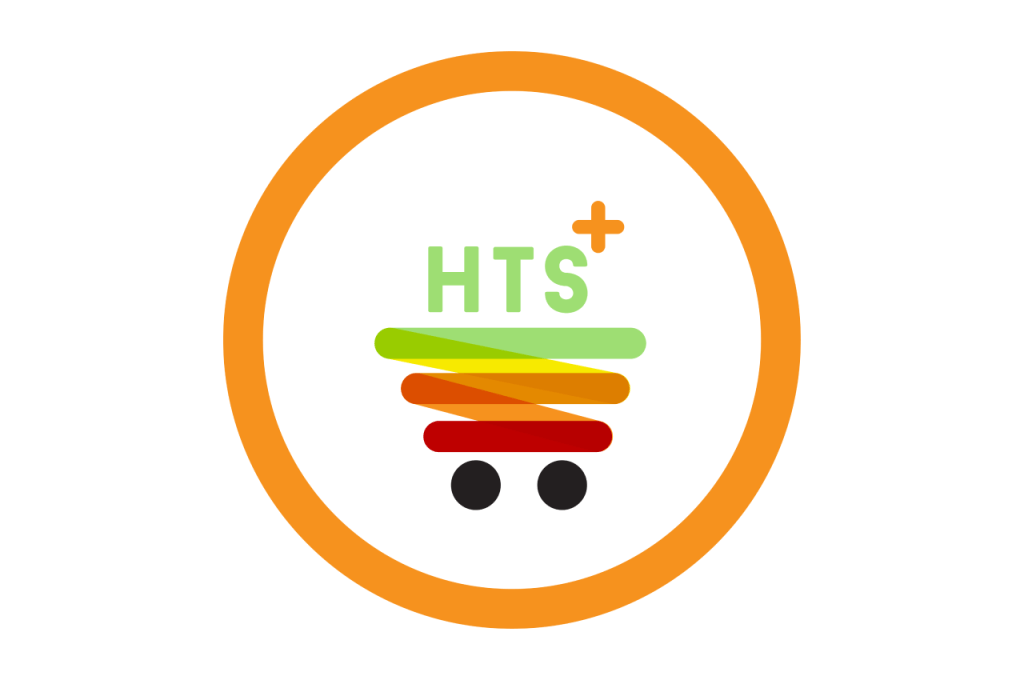
Complementing HTSFarms is HTSPlus, a grocery platform designed to deliver everyday essentials and local market products directly to consumers as well as all household products from their favorite supermarkets in Abuja.
The platform provides convenience which prioritizes quality, freshness, and efficiency in delivery, contributing to convenience for urban customers. HTSPlus has played an important role in providing Nigerian households with seamless shopping options.
HTSLogistics: The Backbone of Supply Chains

HTSF Global launched HTSLogistics, an logistics arm dedicated to providing fast, reliable, and same-day delivery services for customers in Abuja. Operating primarily in Abuja, HTSLogistics has achieved a 92% success rate, completing over 5,000 successful deliveries. The logistics of agricultural goods in Nigeria can be complex, with challenges such as unreliable transportation networks and delayed deliveries often plaguing the sector. As HTSF Global plans to scale its logistics operation, the model is poised to serve as a blueprint for agricultural delivery systems within Nigeria, promoting efficiency and sustainability in agricultural supply chains.
By ensuring the smooth flow of agricultural input and seamless shopping experiences, HTSF is contributing to both national food security and the global goal of increasing farmers productivity and consumer satisfaction.
Aligning with the Sustainable Development Goals (SDGs)

HTSF Global’s initiatives are deeply aligned with the United Nations Sustainable Development Goals (SDGs). The company’s projects directly contribute to several of these goals, including SDG 2 (Zero Hunger), SDG 8 (Decent Work and Economic Growth), and SDG 12 (Responsible Consumption and Production).
One such initiative is the Digital Farmer Initiative, which seeks to bridge the digital divide in rural Nigeria by providing smartphones and digital literacy training to 500 smallholder farmers across five Nigerian states. This initiative aims to empower farmers with the tools they need to access online markets, manage their farms more efficiently, and improve their livelihoods through better farm practices. The impact assessment of this project will focus on the increase in online transactions, crop yield improvements, and income growth over a 12-month period.
Tackling Environmental Challenges: The Zero-Waste Initiative
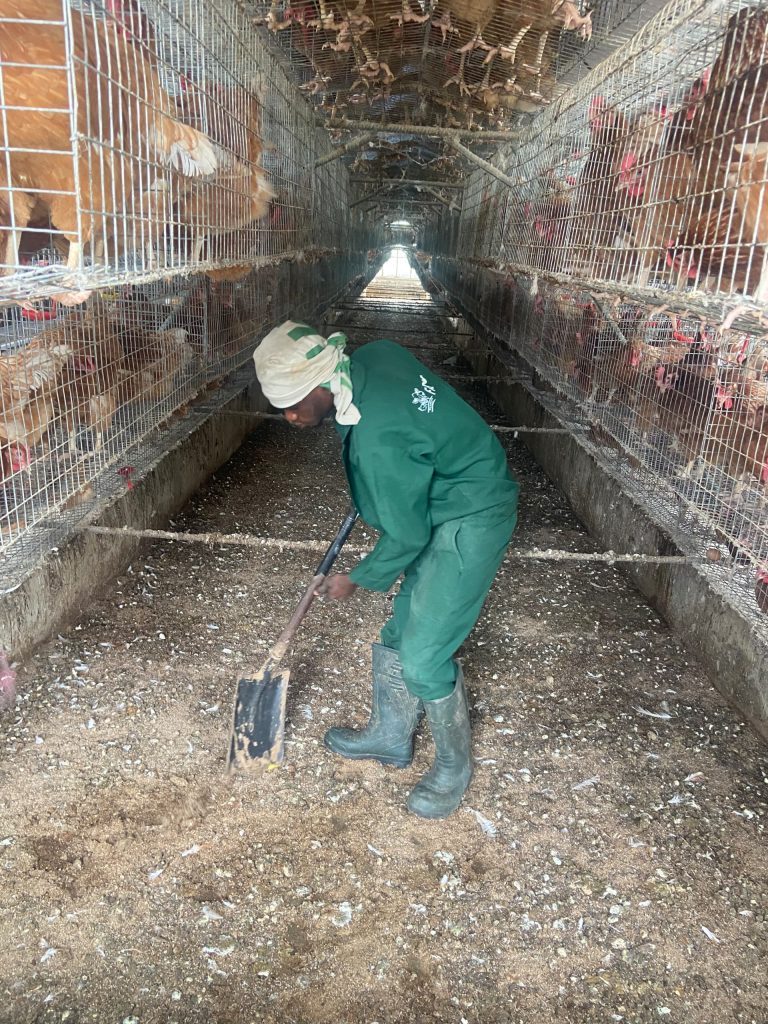
Environmental Sustainability is another key pillar of HTSF Global’s operations. The company is actively addressing the environmental hazards associated with agricultural waste through our upcoming project Youth for Zero Waste Initiative. This project focuses on collecting poultry waste from various farms in Osun State and converting it into organic fertilizer.
The improper disposal of poultry waste can lead to significant environmental hazards, including water contamination and air pollution. By transforming this waste into a resource for sustainable farming, HTSF Global is not only promoting responsible waste management but also enhancing soil health and agricultural productivity. This initiative underscores HTSF’s commitment to environmental justice and sustainable agriculture, while also supporting the circular economy model that is gaining traction globally.
The OASIS Project: A Sustainable Solution for Water Scarcity
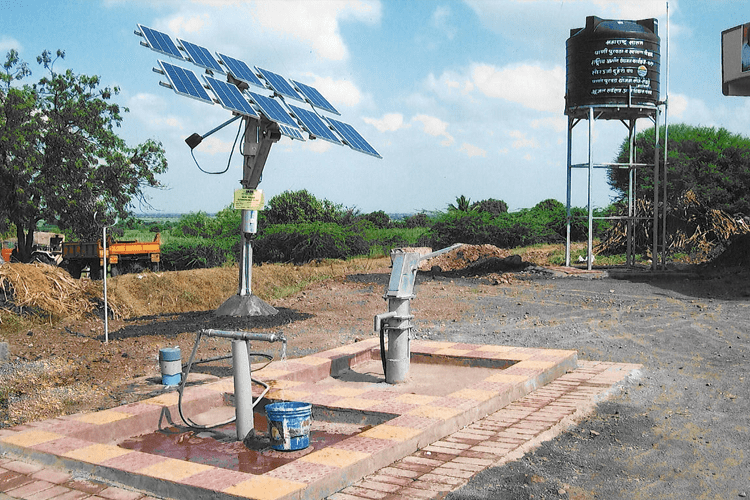
Water scarcity is one of the most pressing challenges for farmers in northern Nigeria, particularly in semi-arid regions where access to water for irrigation is limited. To address this, HTSF Global plans to launch the OASIS Project, an initiative designed to provide sustainable water solutions to farming communities in Kaduna and Nasarawa states.
The OASIS Project involves the installation of hybrid solar-manual powered boreholes and a drip irrigation system to optimize water use. In addition, the project provides high-quality seeds to 2,000 farmers, along with training on accessing the HTSFarms platform for market connections. With a budget of $227,000, the project aims to improve agricultural productivity, increase incomes, and enhance climate resilience in these regions.
Conclusion: Nigerian Agriculture on the Global Stage
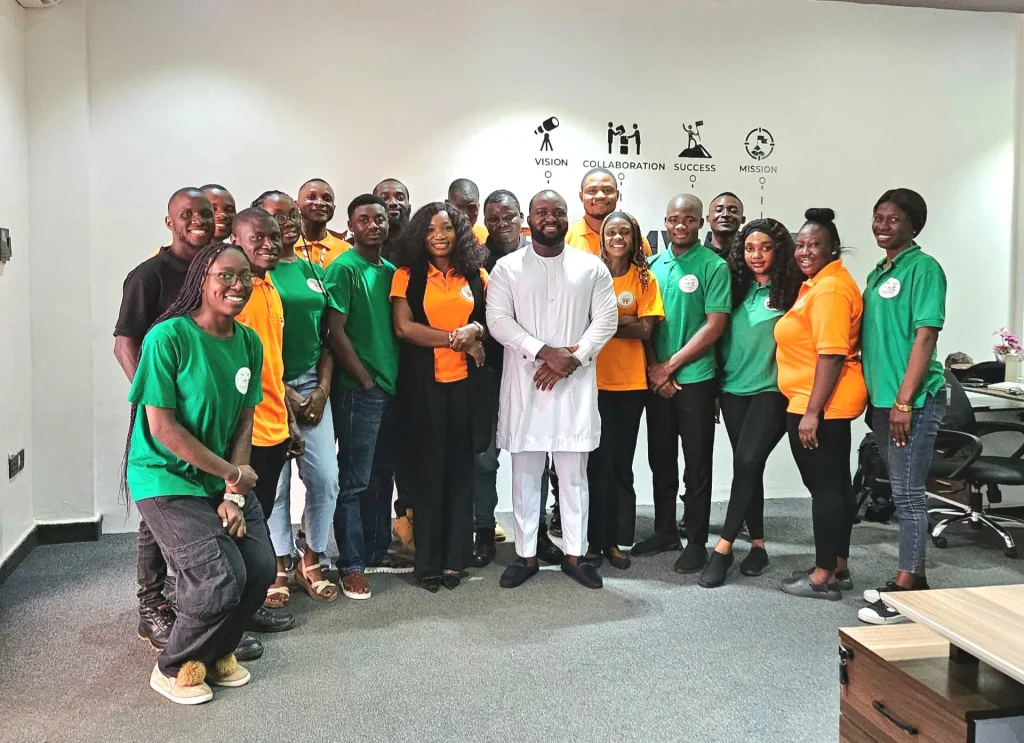
HTSF Global’s vision hopes to extend beyond Nigeria’s borders. By integrating technology into every facet of agricultural production, supply chains, and logistics, the company is not only solving local challenges but also contributing to global conversations on sustainable agriculture. Whether through its innovative platforms like HTSFarms and HTSPlus, or its forward-thinking projects such as the Digital Farmer Initiative and OASIS Project, HTSF Global is positioning Nigerian agriculture as a key player on the world map.
As the company continues to scale and innovate, it brings with it the promise of a more resilient, sustainable, and globally competitive agricultural sector in Nigeria.
References
HTSF Global Official Website: htsfglobal.com
United Nations Sustainable Development Goals: sdgs.un.org/goals
Articles on Digital Transformation in Agriculture: FAO, World Bank, and IFAD reports on agritech trends
Zero Waste International Alliance: Best Practices for Sustainable Agriculture
